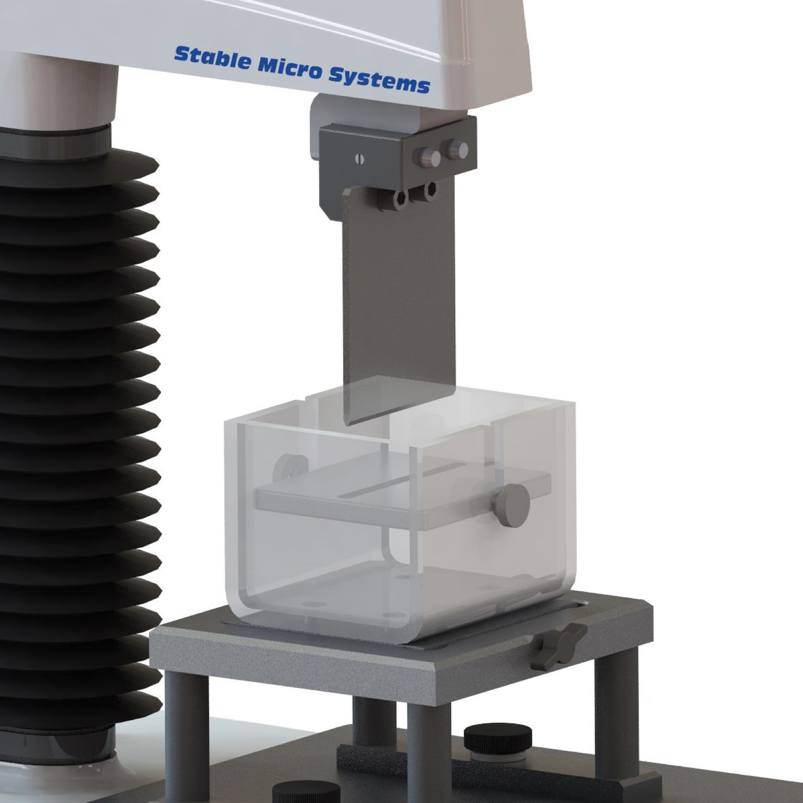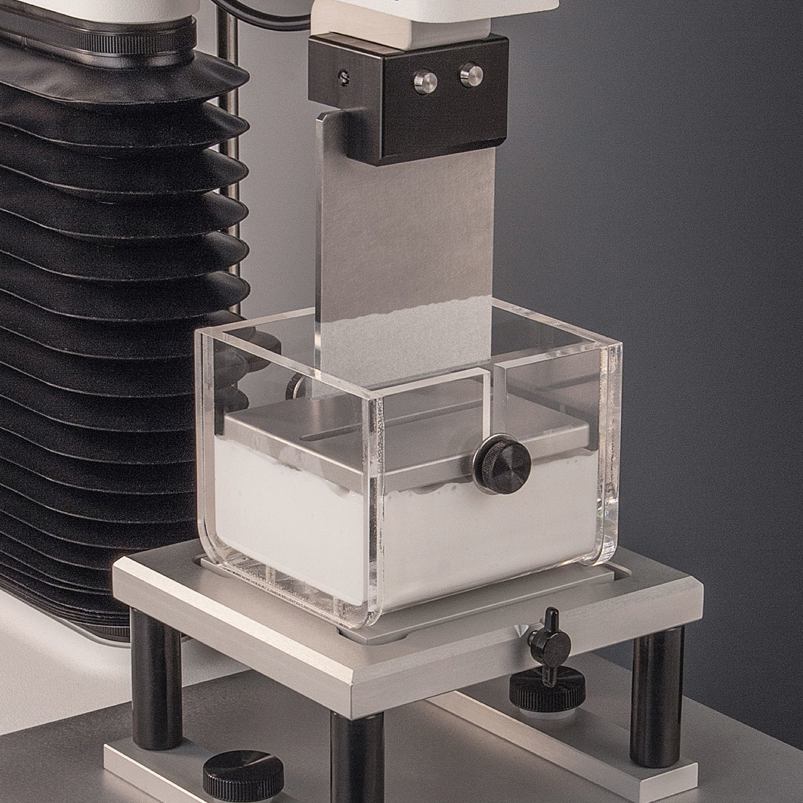Product overview
The Mini Stickiness System is based on the principle of subjecting a viscous polymer sample (or other viscoelastic semisolid) to shear while minimising the exposure of the cut surface to the atmosphere. A retaining plate is placed over the sample with limited compression of the piece being incurred because the height of the lid is predetermined by the size and shape of the sample.
A narrow blade is driven through a slot in the retaining plate to shear through the sample and after a given distance of travel is withdrawn. The intimate contact between sample and blade limits the potential for changes in sample rheology through exposure to the atmosphere.
Cleaning between tests is optimised by the design which employs a fast release mechanism of both the sample test box and blade to increase efficiency.
How does the Mini Stickiness System work?
Ideal sample form
Uniform non-self supporting samples that need to be contained.
Benefits and limitations
- Samples are held down for blade withdrawal to allow adhesion measurement of the mass
Technical information
Installation
Full installation instructions are provided within the Education Zone of the latest Exponent/Connect software version and on the technical information sheet accompanying this product.
Chemical compatibility
Stable Micro Systems probes and attachments are commonly made from four materials: anodised aluminium (AA6082 T6), stainless steel (316 T), Delrin (acetyl copolymer) and Perspex (polycarbonate).
In general use, probes and attachments made from these materials will be suitable for testing food products and inert non-food materials.
The four materials listed above are not universally resistant to all types of chemicals and as such the compatibility of the probe/attachment material with the product (to be tested) must be established to prevent damage to the probes and attachments. If the compatibility of the product with the probe is unknown to the customer then the chemical information about the product (Material Safety Data Sheet or Product Data Sheet) should be submitted to Stable Micro Systems. Stable Micro Systems will then assess the suitability of the probe/attachment material for use with the product and advise accordingly. If this advice is not sought then Stable Micro Systems will not accept liability for probes/attachments damaged by chemical attack from the product being tested.
Cleaning and maintenance
All probes and attachments may be cleaned in warm (or hand hot) water using a mild detergent. A soft brush may be used but abrasive cleaning aids should be avoided. Stable Micro Systems products should not be microwaved or cleaned in a dishwasher.
Screw threads should be lightly lubricated after drying using a light lubricant, e.g. petroleum jelly, mineral oil. This will aid the fitting and unscrewing of the item. Each component of a probe or attachment should be wrapped separately when stored, to avoid scratching or chipping. This will safeguard against any unnecessary damage to the accessory.



